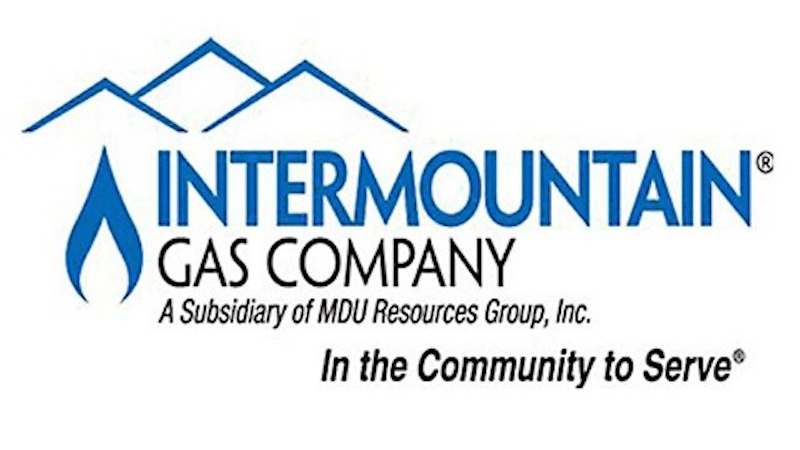Commission opens investigation of Intermountain Gas Company rate increase request
Published at
The following is a news release from the Idaho Public Utilities Commission.
BOISE — Parties who want to intervene in Intermountain Gas Company’s application to increase base rates have until Sept. 23 to file petitions for intervention with the Idaho Public Utilities Commission.
Parties — typically representing customer groups — intervene in rate cases to present evidence and cross-examine witnesses. Individual customers will also be able to provide comment as the case progresses. Dates for customer comment deadlines and public workshops or hearings, if necessary, will be announced at a later time.
On Aug. 12, Intermountain Gas filed an application with the commission to increase its base rate an average 4 percent, or about $10.2 million. It is the first Intermountain Gas base rate case since 1985.
There are two primary components of the overall rate paid by Intermountain Gas customers. About half the rate is the base rate, which has not been adjusted since 1985. The other half is the variable portion of rates, or Purchased Gas Cost Adjustment (PGA), that is adjusted up or down on Oct. 1 of every year to account for the always changing market prices for natural gas and transportation. Intermountain Gas has a separate application before the commission to reduce the PGA by an average 7.1 percent. If approved, the PGA reduction would become effective Oct. 1, 2016, while the proposed base rate increase would become effective on or about March 1, 2017.
If the full base rate request were granted, a residential customer who uses the company’s average of 747 therms per year and uses natural gas for space and water heating, would experience an increase of about $2.31 per month. A residential customer who uses natural gas only for space heating would see an increase of about $1.16 per month. Commercial customers’ monthly increase would be about $12.16. These numbers do not include the reduction in variable rates that would occur if the company’s PGA application were granted.
Intermountain Gas, which serves about 334,650 customers in 75 communities across southern Idaho, says the base rate increase is needed because of increased operating costs to meet customer growth, the need to replace customer service information and technology systems, and increased costs related to pipeline safety regulations and compliance.
Since its last rate case in 1985, the number of Intermountain Gas residential customers has increased from 85,400 to more than 300,000. In the same period, the number of commercial customers has increased from 13,300 to nearly 32,000. While more customers increase sales revenue, they also require more investment in non-revenue generating infrastructure such as pipeline expansion and replacement and customer care systems and information technology, Intermountain Gas claims.
The commission’s staff of auditors, engineers and attorneys are in the midst of a six-month investigation of Intermountain’s application. The commission, by state law, cannot accept or deny the requested increase without first considering the evidence. State law requires that regulated utilities be allowed to recover their prudently incurred expenses and earn a reasonable rate of return, which is also established by the commission. Intermountain Gas is requesting a 9.9 percent return on equity and an overall rate of return of 7.42 percent. The burden of proof is on the utility to demonstrate that its additional capital investment is necessary to serve customers and if those expenses are prudently incurred. Commission decisions can be appealed to the state Supreme Court by either the utility or customer groups.
Another issue in the case is Intermountain Gas’ proposal to create demand side management (DSM) programs to help customers reduce natural gas consumption. One of those programs would provide rebates to customers who install high-efficiency natural gas equipment and ENERGY Star certified homes.
Natural gas utilities, like electric utilities, are sometimes discouraged from enacting programs to help customers reduce consumption because they depend on sales to meet their fixed costs of operating. In recent years, more efficient building code standards and appliances have resulted in customers using less natural gas, thus reducing the margin the company relies on to pay for fixed costs such as expanding or replacing its pipeline distribution system.
To address the financial disincentive to encourage conservation and the reduced fixed cost recovery, Intermountain Gas is proposing to implement a Fixed Cost Collection Mechanism (FCCM) – similar to Idaho Power’s Fixed Cost Adjustment – that ensures stability in revenues regardless of how much natural gas customers use. The company claims the yearly rate adjustment would allow Intermountain Gas to effectively promote DSM programs without the financial disincentives that currently exist.
Customers can track the progress of the case by accessing the commission’s website at www.puc.idaho.gov. Click on “Open Cases,” under the Natural Gas heading and scroll down to Case No. INT-G-16-02. The company’s application and supporting testimony is available. Later, more documents from intervening parties, commission staff and customer comments will be added as the case progresses.


